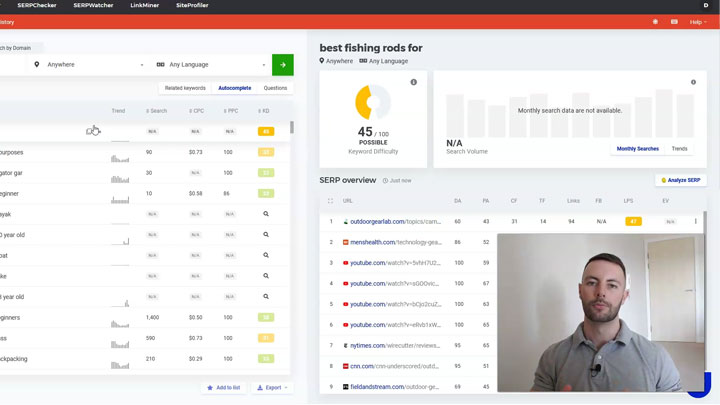Affiliate marketing, a strategy where businesses reward one or more affiliates for each visitor or customer brought by the affiliate’s own marketing efforts, has been a staple of the digital marketing landscape for years.
However, despite its potential for mutual benefit among advertisers, affiliates, and consumers, affiliate marketing often finds itself shrouded in a negative reputation.
But why exactly is that?
Well if that’s what you’ve been wondering, you can rest assured you’ve landed in the right place.
In this blog post, I’ll be delving into the reasons behind this perception & shedding light on the challenges and misconceptions that contribute to the scepticism surrounding affiliate marketing.
Top 5 Reasons People Hate Affiliate Marketing
Even though affiliate marketing can prove to be an extremely lucrative endeavour, there are many people who give it hate & there are many people who believe it’s really nothing but a scam.
Here are the 5 main reasons why:
1. Misuse and Abuse
One of the primary reasons for the negative reputation is the misuse and abuse of affiliate marketing strategies.
Some affiliates engage in unethical practices such as spamming, misleading advertising, and creating low-quality content solely designed to generate clicks (known as clickbait).
These practices not only annoy consumers but also tarnish the reputation of legitimate affiliate marketers who adhere to ethical standards.
2. Lack of Transparency
Transparency issues also play a significant role.
Consumers may feel deceived when they realize that an endorsement or recommendation is motivated by a commission rather than genuine support for the product or service.
This lack of transparency can lead to a trust deficit, making consumers sceptical of affiliate marketing as a whole.
3. Oversaturation and Low Quality
The internet is oversaturated with affiliate marketing content, and not all of it is high-quality or valuable to consumers.
This abundance can overwhelm and frustrate users, making it difficult for them to find genuine, unbiased information.
When affiliate content prioritizes sales over the consumer’s needs or fails to provide real value, it contributes to the negative perception of affiliate marketing.
4. Short-Term Focus Over Long-Term Relationships
Many affiliate marketing strategies are focused on short-term gains rather than building long-term relationships with audiences.
This approach can result in a cycle of chasing quick profits through aggressive marketing tactics, which can alienate consumers and degrade the quality of the affiliate-marketer relationship.
5. Regulatory Scrutiny and Legal Issues
Affiliate marketing has also attracted regulatory scrutiny due to some marketers’ failure to disclose their affiliate relationships properly.
Regulatory bodies like the Federal Trade Commission (FTC) in the United States have established guidelines requiring affiliates to disclose their relationships with the brands they promote transparently.
Failure to comply with these regulations can result in penalties and further damage the reputation of affiliate marketing.
Is Affiliate Marketing Actually Legit?
The good news is that despite the challenges and issues highlighted above, the short answer is yes, affiliate marketing is a legitimate and effective digital marketing strategy when implemented ethically and transparently.
You see, affiliate marketing, at its core, is a performance-based marketing strategy that benefits all parties involved: affiliates get rewarded for driving traffic and sales, businesses gain new customers and increased revenue, and consumers discover products and services through trusted recommendations.

When conducted within ethical boundaries and regulatory guidelines, affiliate marketing is not only legitimate but also highly valuable.
The foundation of legitimate affiliate marketing lies in ethical practices and transparency. Affiliates who clearly disclose their relationships with the brands they promote contribute to a transparent and trust-based ecosystem.
Ethical marketers prioritize their audience’s needs, offering genuine recommendations and valuable content. This approach fosters trust and credibility, both of which are essential for sustainable success in affiliate marketing.
This value-first, ethical approach involves sharing comprehensive, unbiased reviews, tutorials, and insights that help consumers make informed decisions.
By prioritizing the consumer’s needs and interests, ethical affiliates build a loyal following and contribute positively to the affiliate marketing industry’s reputation.
The Bottom Line
While affiliate marketing faces criticism due to unethical practices by some, it remains a legitimate and effective marketing strategy at its heart.
By focusing on ethical practices, transparency, value creation, and regulatory compliance, affiliate marketing can transcend its negative reputation.
For those willing to invest the time and effort to build genuine relationships with their audience and promote products with integrity, affiliate marketing offers a viable path to success.
The key is to approach it with the consumer’s best interests in mind, aiming for long-term relationships rather than quick wins. This perspective not only proves the legitimacy of affiliate marketing but also contributes to a healthier, more trustworthy digital marketing ecosystem.
Ready to dive into the world of affiliate marketing yourself? Here’s where I recommend you start.


